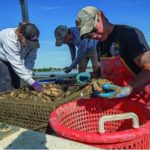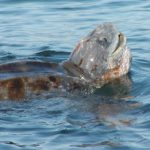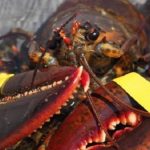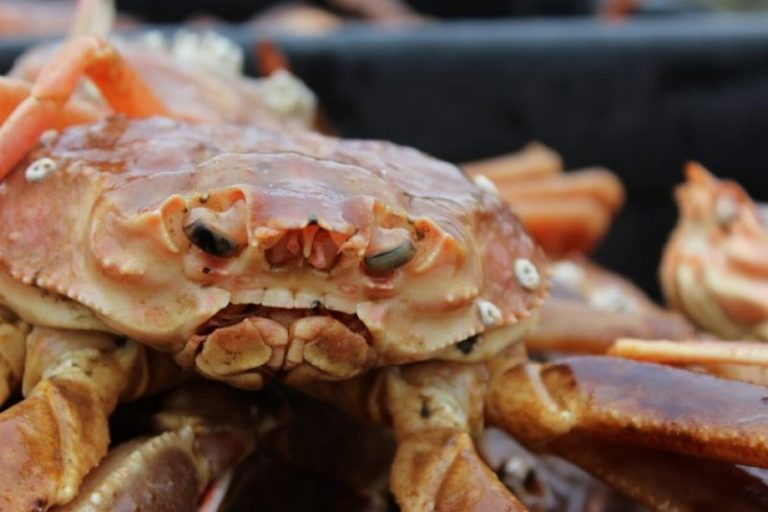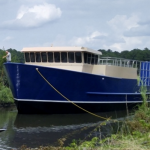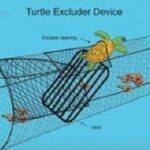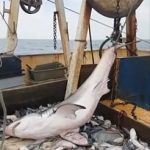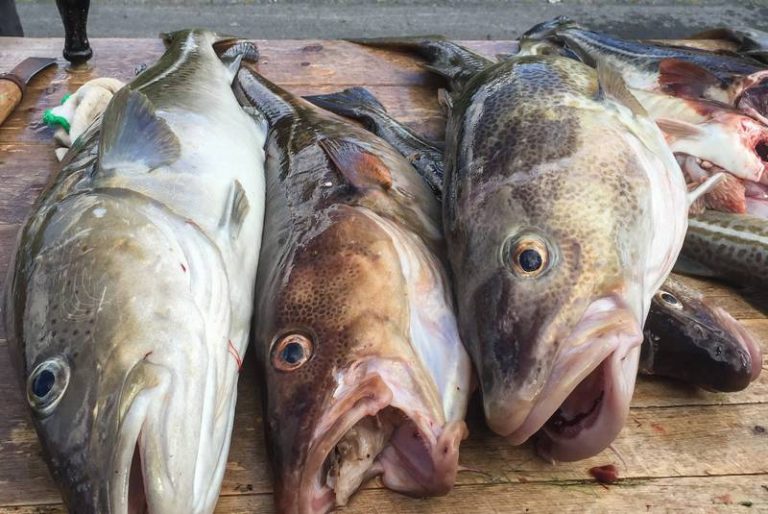Tag Archives: dogfish
Predators take big bite out of declining Atlantic mackerel population
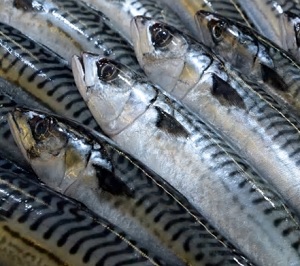 Predators ate at least twice as many Atlantic mackerel as commercial fishery landings in the decade leading up to Canada’s region-wide moratorium, according to new research by Canadian and American scientists. The study also found seals are a major predator, lending credence to what many fishermen have long claimed. The modelling study was published this month by the federal Fisheries Department and the Canadian Science Advisory Secretariat. The top predators were gannets, grey seals, dogfish and bluefin tuna. In the most conservative estimate, predators removed between 21,000 and 29,000 tonnes annually between 2012 and 2021 — at least two times greater than Canadian commercial landings reported as 11,000 tonnes per year. more, >>CLICK TO READ<< 12:26
Predators ate at least twice as many Atlantic mackerel as commercial fishery landings in the decade leading up to Canada’s region-wide moratorium, according to new research by Canadian and American scientists. The study also found seals are a major predator, lending credence to what many fishermen have long claimed. The modelling study was published this month by the federal Fisheries Department and the Canadian Science Advisory Secretariat. The top predators were gannets, grey seals, dogfish and bluefin tuna. In the most conservative estimate, predators removed between 21,000 and 29,000 tonnes annually between 2012 and 2021 — at least two times greater than Canadian commercial landings reported as 11,000 tonnes per year. more, >>CLICK TO READ<< 12:26

Are we really going to let them kill our ocean and our fishing way of life?
Generations of fishermen are no longer fishing because of the restrictions and unfair quota from faulty science. Like I said in earlier posts, we went from 400 active boats down to 17 barely active boats. Meanwhile conservation groups will tell you that we are wiping the ocean out from overfishing. That is so wrong on so many levels, it isn’t even funny. Hard to believe New England was considered to be sustainable for haddock and lobsters. Then fishing efforts went down and now we are no longer sustainable. The only thing that’s changed is windmills are on their way to the Gulf of Maine and the management at NOAA and NMFS are allowing it to happen. Why would they not talk to the people who have committed their lives to the job of harvesting our ocean?! Well, I can’t speak for everyone, but I have a few hypotheses. By Jerry Leeman. >click to read< 16:38

Maine business group seeks rare deal to export ‘cape shark’ to Cuba
The cape shark, more commonly known as the dogfish, typically finds its home in the frigid, salty waters of midcoast Maine. However, thanks to the efforts of a group of Maine-based agriculturalists, the fish may soon be taken by the tides of trade to the warm shores – and markets – of Cuba. The export of dogfish is part of a larger deal being brokered by a group of Maine agriculturalists who hope to create a pipeline of Maine-based agricultural and fishery products to Cuba. Among the proposed exports are seed potatoes and apples along with dogfish. The export of such products is meant to help the Cuban economy, which has suffered in recent years due to the coronavirus pandemic, become more self-sufficient while also benefiting Maine’s economy. “Our fishing industry, if you do a little history on it – recent history – is suffering for a lot of reasons,” Marchant said. “The advantage of Cuba getting any food exports right now is dramatic.” >click to read< 09:19
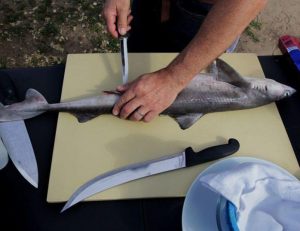
Dogfish harvest to stay same in ’19 as fishermen seek market
Federal ocean managers are allowing the same level of harvest of smooth dogfish, a small species of shark that members of the East Coast seafood industry have tried to find a market for. The National Oceanic and Atmospheric Administration says the smooth dogfish quota will be a little less than 4 million pounds in 2019. Earlier this year, the Cape Cod Commercial Fishermen’s Alliance received a Saltonstall-Kennedy grant of about $37,000 from NOAA for a marketing and promotion project centered on raising the profile of dogfish – including changing the name of the species – to make it more attractive to consumers. >click to read<19:29
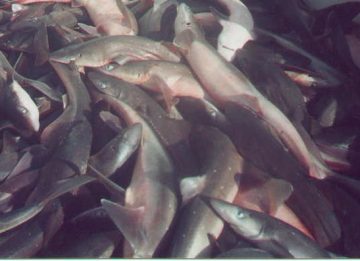
Dogfish population declines off East Coast, as will the harvest
A small species of shark that is fished for food off the East Coast has declined slightly in population, and fishermen will be allowed to catch slightly less of it in the coming year. Spiny dogfish are harvested off several Atlantic states, and they are especially popular in Europe. The Atlantic States Marine Fisheries Commission says a recent assessment of the shark’s population shows a decline in the number of spiny dogfish. >click to read<10:13
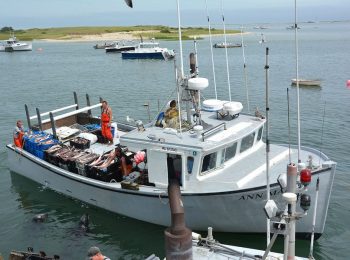
Can dogfish save Cape Cod fisheries?
Cape Cod has nearly lost its namesake fish, due to overfishing and climate change. So fishermen have switched to dogfish, skates, and other more plentiful options. This move could help revive the Massachusetts fishing industry, and might even help the cod rebound, researchers say. But getting Americans to bite may not be as easy. “This is the fish we could feed the United States with,” says Chatham fisherman Doug Feeney. “We have people that are hungry. We have prison systems. We have vets. We have homeless people. There’s just so much that can be done with this product.”>click to read<10:49
Cod Is Dead—Is Dogfish the Answer?
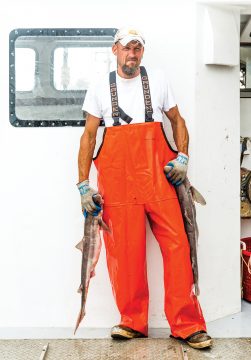 On a wind-tossed autumn morning off the Cape Cod coast, the aft deck of Doug Feeney’s 36-foot fishing boat, the Noah, is buried beneath a squirming, slimy, shin-deep layer of sharks. The Noah’s hauler growls under the weight of the 300-hook long line emerging from the froth-tipped Atlantic. The reek of gasoline mingles with salt. A procession of small gray sharks, each pierced neatly through the jaw by a steel hook, materializes from the depths. Feeney, a lean fisherman whose goatee and hoop earrings lend him a vaguely piratical mien, yanks the sharks from the line with the steady rhythm of an assembly-line worker. A drained cup of coffee perches on the dashboard; James Taylor warbles on the radio. “Twenty-five years ago we’d catch 10,000 pounds of these things every day,” Feeney shouts over the roar of the engines and “Fire and Rain.” “We’d just throw ’em back over the side.” Like many Chatham fishermen, Feeney is a jack-of-all-trades. He gillnets monkfish in early spring, he trolls for bluefin tuna in late fall. But no species occupies more of his energy than the spiny dogfish, the dachshund-size shark now piling up on the Noah’s deck. Read the story here 09:27
On a wind-tossed autumn morning off the Cape Cod coast, the aft deck of Doug Feeney’s 36-foot fishing boat, the Noah, is buried beneath a squirming, slimy, shin-deep layer of sharks. The Noah’s hauler growls under the weight of the 300-hook long line emerging from the froth-tipped Atlantic. The reek of gasoline mingles with salt. A procession of small gray sharks, each pierced neatly through the jaw by a steel hook, materializes from the depths. Feeney, a lean fisherman whose goatee and hoop earrings lend him a vaguely piratical mien, yanks the sharks from the line with the steady rhythm of an assembly-line worker. A drained cup of coffee perches on the dashboard; James Taylor warbles on the radio. “Twenty-five years ago we’d catch 10,000 pounds of these things every day,” Feeney shouts over the roar of the engines and “Fire and Rain.” “We’d just throw ’em back over the side.” Like many Chatham fishermen, Feeney is a jack-of-all-trades. He gillnets monkfish in early spring, he trolls for bluefin tuna in late fall. But no species occupies more of his energy than the spiny dogfish, the dachshund-size shark now piling up on the Noah’s deck. Read the story here 09:27
Rules tightened on shark fin removal at sea
 Interstate regulators are tightening the restrictions on the last species of shark that can have its fins removed at sea in the U.S. Smooth dogfish are the only sharks from which American fishermen can remove fins at sea. Many other sharks can be hunted, but fins can’t be removed until processing on land. The Atlantic States Marine Fisheries Commission voted Tuesday to approve a new rule that allows fishermen to bring smooth dogfish to land with fins removed, as long as their total retained catch is at least 25 percent smooth dogfish. Right now, they can bring ashore as many as they choose. The rule change would better incorporate the Shark Conservation Act of 2010 into management of the dogfish, staff with the fisheries commission said. The dogfish are harvested from Rhode Island to North Carolina, and are among the many shark species that fishermen bring to land in states from Maine to Texas. Sharks are also hunted for their meat, but their greatest value is in their fins, which are used to make shark fin soup. Read the rest here 17:33
Interstate regulators are tightening the restrictions on the last species of shark that can have its fins removed at sea in the U.S. Smooth dogfish are the only sharks from which American fishermen can remove fins at sea. Many other sharks can be hunted, but fins can’t be removed until processing on land. The Atlantic States Marine Fisheries Commission voted Tuesday to approve a new rule that allows fishermen to bring smooth dogfish to land with fins removed, as long as their total retained catch is at least 25 percent smooth dogfish. Right now, they can bring ashore as many as they choose. The rule change would better incorporate the Shark Conservation Act of 2010 into management of the dogfish, staff with the fisheries commission said. The dogfish are harvested from Rhode Island to North Carolina, and are among the many shark species that fishermen bring to land in states from Maine to Texas. Sharks are also hunted for their meat, but their greatest value is in their fins, which are used to make shark fin soup. Read the rest here 17:33
Taste-test unwraps flavor of shark fishery’s potential – Commercial Fisherman Dewey Hemilright was on hand
 The third and final tasting event in the North Carolina Sea Grant Shark Sensory Evaluation has come and gone.,, Commercial Fisherman Dewey Hemilright was on hand to expand on Mirabilio’s presentation. Hemilright is an advocate for North Carolina commercial fishermen, a tireless educator and is active in Outer Banks Catch and the N. C. Coastal Federation and other related organizations. “These taste testing put on by Sea Grant, Sara and Cafe Lachine are most important in the future success in bringing cape shark to the consumer plates here in the U.S.,” said Hemilright. “Sara did an awesome job presenting. She gets it! This fishery is sustainable and is not overfished.” Read the rest here 09:23
The third and final tasting event in the North Carolina Sea Grant Shark Sensory Evaluation has come and gone.,, Commercial Fisherman Dewey Hemilright was on hand to expand on Mirabilio’s presentation. Hemilright is an advocate for North Carolina commercial fishermen, a tireless educator and is active in Outer Banks Catch and the N. C. Coastal Federation and other related organizations. “These taste testing put on by Sea Grant, Sara and Cafe Lachine are most important in the future success in bringing cape shark to the consumer plates here in the U.S.,” said Hemilright. “Sara did an awesome job presenting. She gets it! This fishery is sustainable and is not overfished.” Read the rest here 09:23
What killed the sharks off Lavallette?
 Barbara Macheska of Toms River counted more than a dozen dead sand sharks over the past month during her nearly half-mile walks on the beach near her barrier island home. “About a month ago, in a three day period, I found 10 sand sharks. The majority were barely alive,” she said. “Last week I found seven more.” The dead sharks were so numerous that the state was alerted. Caryn Shinske, a spokeswoman for the department, said a large number of dogfish, a sand-colored bottom-feeding small shark, had washed ashore in Ocean County in recent weeks. (We found no reference to dogfish washing ashore in Ocean County) Read the rest here 17:17
Barbara Macheska of Toms River counted more than a dozen dead sand sharks over the past month during her nearly half-mile walks on the beach near her barrier island home. “About a month ago, in a three day period, I found 10 sand sharks. The majority were barely alive,” she said. “Last week I found seven more.” The dead sharks were so numerous that the state was alerted. Caryn Shinske, a spokeswoman for the department, said a large number of dogfish, a sand-colored bottom-feeding small shark, had washed ashore in Ocean County in recent weeks. (We found no reference to dogfish washing ashore in Ocean County) Read the rest here 17:17
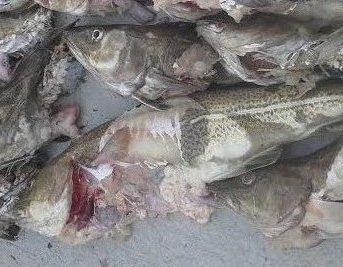
A Must Read! FishNet USA / Dogfish and seals and dolphin, oh my!
The bottom line is that while commercial fishermen from North Carolina to Maine are at work catching on the order of half a million mt of fish and shellfish a year, it appears as if it takes an annual 20,000,000 tons or more to keep all those marine mammals and low-value spiny dogfish and various other predatory fish going. How much of that 20 million tons is commercially/recreationally valuable species or the forage species that sustain them? No one seems awfully interested in finding that out, but they sure should be. Read the rest here 10:55
Disapearing Job’s: Eric Hesse is a fisherman based in Cape Cod
Here’s how he describes his job: When I started, there were hundreds of boats that would go out especially in the winter chasing codfish. But there aren’t really any codfish left. They were severely depleted by overfishing and it’s made for kind of a bleak picture. There’s no telling when it’s going to come back. . Listen, and read the rest here 08:45
The Mercury-Laden Fish Floated for School Lunches – Dogfish
 From the article: Cussed Dogfish – New England fishermen have hated dogfish for a long time, and there has never been a significant domestic market for the species. New York Times articles penned more than a century ago bemoan the dogfish as “cussed,” “ferocious” and so thick “it’s good-bye fishin’.” Read more here 19:53
From the article: Cussed Dogfish – New England fishermen have hated dogfish for a long time, and there has never been a significant domestic market for the species. New York Times articles penned more than a century ago bemoan the dogfish as “cussed,” “ferocious” and so thick “it’s good-bye fishin’.” Read more here 19:53
Dogfish ‘everywhere’ (not just) in Gulf of Maine, but sales go nowhere
 Regulators may raise catch limits on the voracious little shark, which competes with more valuable ocean species for food. And here’s the problem: Scientists say there are huge and growing numbers of dogfish in the Gulf of Maine competing for the same food as more commercially valuable species, such as cod and haddock. Read more here 08:10
Regulators may raise catch limits on the voracious little shark, which competes with more valuable ocean species for food. And here’s the problem: Scientists say there are huge and growing numbers of dogfish in the Gulf of Maine competing for the same food as more commercially valuable species, such as cod and haddock. Read more here 08:10
Research shows dogfish are a significant threat to cod
 February 7, 2013 — Dogfish provide significant competition for cod. The estimated biomass of dogfish is 240,000 tons vs. only around 23,000 tons for both Georges Bank and Gulf of Maine Cod. Scientists found dogfish can tolerate temperatures from 32 to 80 degrees, far more than most other fish, meaning as water warms, they can easily adapt to new temperatures. Read more here
February 7, 2013 — Dogfish provide significant competition for cod. The estimated biomass of dogfish is 240,000 tons vs. only around 23,000 tons for both Georges Bank and Gulf of Maine Cod. Scientists found dogfish can tolerate temperatures from 32 to 80 degrees, far more than most other fish, meaning as water warms, they can easily adapt to new temperatures. Read more here
Cape Cod’s fishermen fret over seals, dogfish and the future
Two areas, 35-miles south and 150-miles east of Chatham have been closed for cod and other groundfish but the National Marine Fisheries Service is contemplating re-opening to help fishermen because all fishermen are facing drastic cuts of 70 percent in cod and 73 percent in haddock on Georges Bank. But not all fishermen are enthused.
Then there’s this insight by someone who can’t be very smart.
Wholesaler Andy Baler of the Nantucket Fish Company noted that huge mid-water trawlers are catching tons of herring off shore while the National Marine Fisheries Service looks idly on. “Cod and haddock feed on local herring but they’re starving. That’s why you see fish so skinny,” he said. “The mid-water trawlers are going to suck every bit of bait out there. You have one management system for some fish and another management system that goes and kills all the fish they eat.” Bullard conceded the two plans are un-connected. NOAA takes a fish by fish approach. “This port is crushed. We’re living on a few dogfish,” Baler declared. “We need some help. Keep the herring here so we can fish the channel.”
Read more: Cape Cod’s fishermen fret over seals, dogfish and the future – – Harwich Oracle http://www.wickedlocal.com/brewster/newsnow/x1826353094/Cape-Cods-fishermen-fret-over-seals-dogfish-and-the-future#ixzz29O2eBrZ9
The relationship is this. The larvae of the bottom fish need to go to the surface of the ocean in order to obtain food – plankton – and light. While they go up, they become a feast for the pelagics. When those larvae that survive become codlThe relationship is this. The larvae of the bottom fish need to go to the surface of the ocean in order to obtain food – plankton – and light. While they go up, they become a feast for the pelagics. When those larvae that survive become codlings, they want to go back to their friends and relatives. While they descend to their native habitat, they become a second feast for the pelagics.
http://carmine3.newsvine.com/_news/2010/11/04/5408211-fish-and-future

































